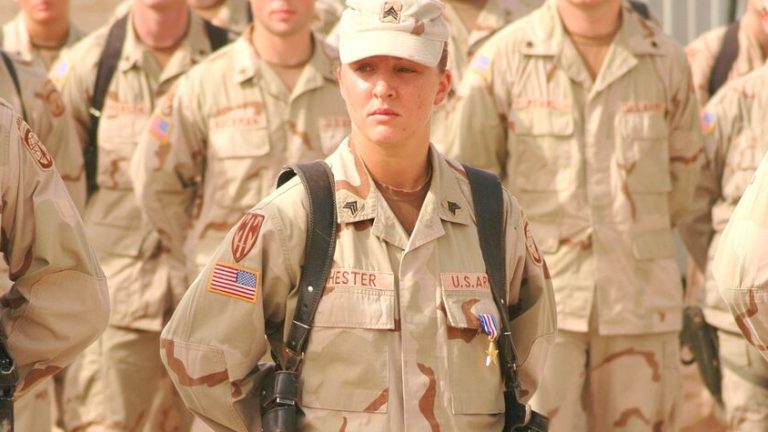
Silver Star Medal Recipient Leigh Ann Hester: “I just did what I was trained to do”
When Leigh Ann Hester heard the call of duty as a young girl she always knew she’d serve in the U.S. Armed Forces, but she didn’t know she’d make history by doing so. To date there have only been six women who have been awarded the distinguished Silver Star Medal for valor and Hester is one of them. She is the first female soldier to receive the honor since World War II.
In 2005, Sgt. 1st Class Hester skillfully led her team safely through an ambushed attack in Iraq, which resulted in saving her entire squad, yet she humbly states she’s not a hero.
“For some reason I was put in the place where I was and I just did what I was trained to do,” she exclusively told The Voluntourist.
Hester, who was with the 617th Military Police Company, a National Guard unit out of Richmond, Ky., was recognized and honored for her courageous actions at the 29th Annual PBS Memorial Day Concert in Washington D.C. where we talked to the veteran about her military career, women’s equality in the armed forces and women who have inspired her.
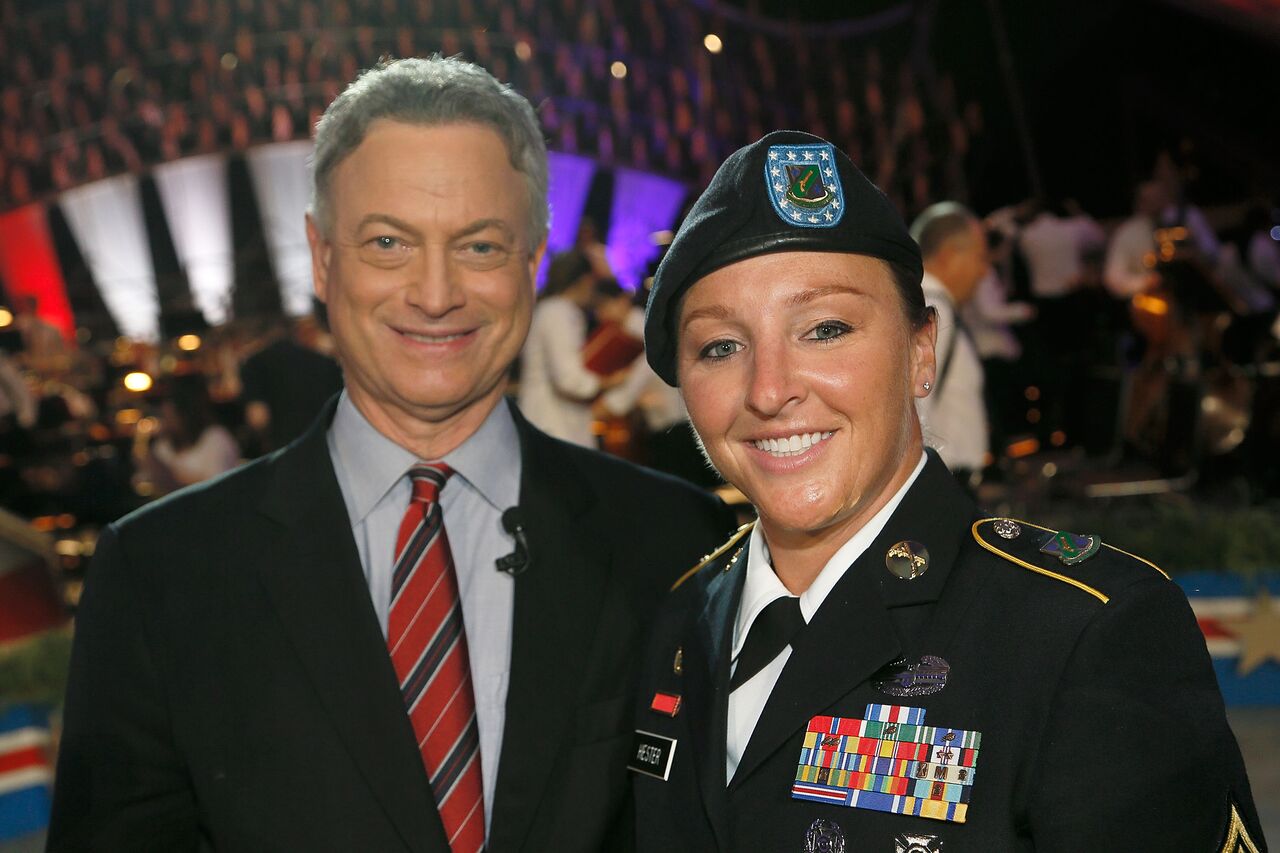
The Voluntourist: What’s it like to be honored at the PBS’ National Memorial Day Concert?
Leigh Ann Hester: When they first reached out to me I didn’t fully understand how big it was and what exactly it was. I’ve seen bits and pieces of the Memorial Day Concert, but I didn’t watch it in its entirety. I did a little research and I’ve realized how important it is. There’s been a lot of women in the military that came before me and I know this is a big year for women in the military. I can only hope my actions years ago helped paved the way for women in the military.
The Voluntourist: Tell me about the incident and your actions that led to you being honored with the Silver Star.
Leigh Ann Hester: On March 20, 2005 I was deployed to Baghdad, Iraq. Our job was to clear convoy routes and make sure convoys got through our area safely. That morning we got behind our convoy to follow them through an area. They came under attack and were ambushed. My squad went in between the convoy itself, which is about 30 semi-trucks. We basically fought through the enemy. There was more than 50 out there and there was only 10 of us. We suffered zero loss, we did have three injured, but we didn’t have any casualties. For my actions, I was awarded the Silver Star.
The Voluntourist: I imagine the attack was a total surprise, so how did you jump into action so quickly? Was it training, instinct, survival mode?
Leigh Ann Hester: It was all of the above. We had been in a few fire fights before and the convoys that run through there, they’re an easy target because their big trucks with little support. It’s easy for insurgent to hit them really quickly and run away. This instance was on a larger scale. There were more insurgents out there than in previous events. It wasn’t necessarily a surprise, it’s just a matter of when. I was surprised by how many people and weapons were involved, but it goes back to training. When we saw them get hit, it helped we knew the area. We did what we were trained to do.
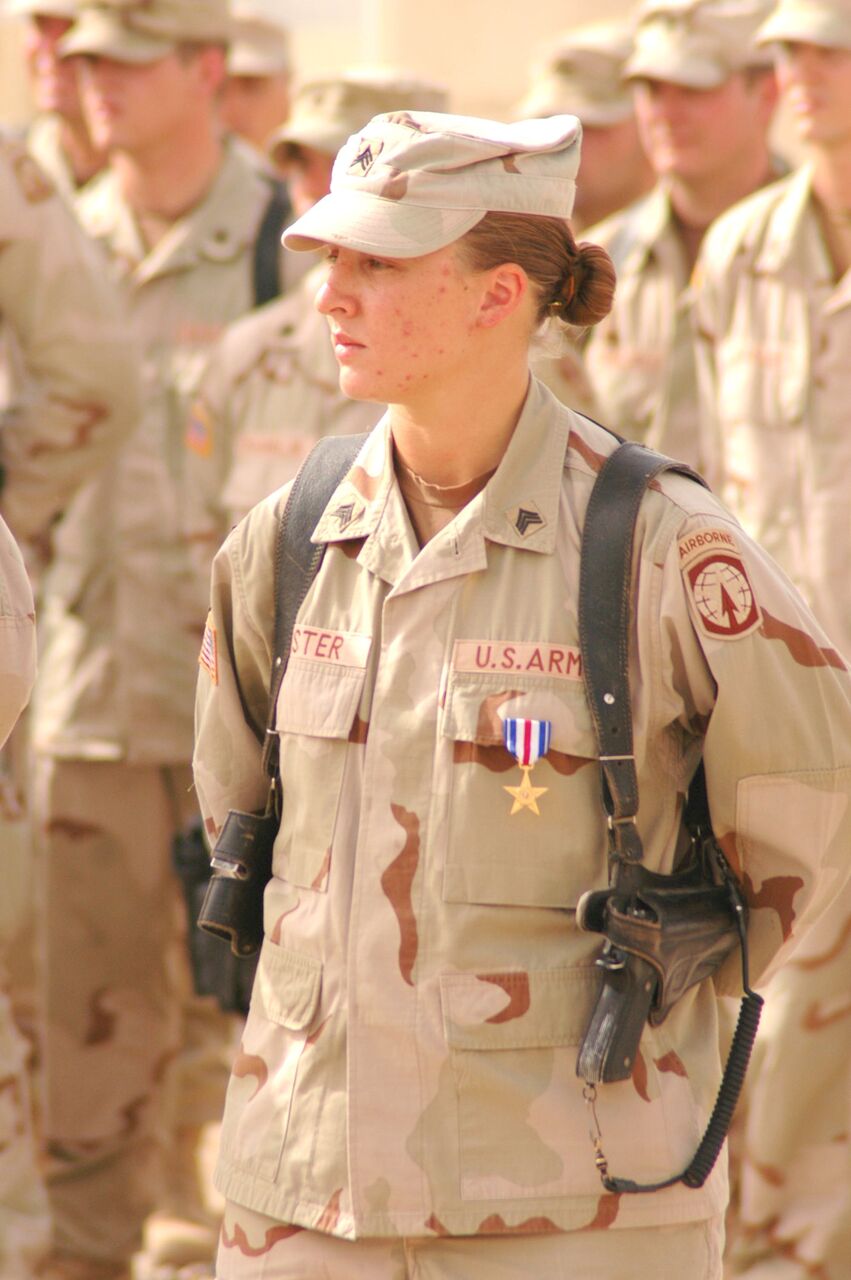
The Voluntourist: What inspired you to join the military?
Leigh Ann Hester: I grew up a bit of a tomboy and a daddy’s girl. My dad taught me how to shoot and hunt and fish. I always looked up to men and women in uniform. It always sparked an interest when I was little. I looked up to women especially and thought that could be me one day. My uncle and grandfather were veterans so I’m sure that had something to do with it. Growing up I had friends that were also in the National Guard and that’s something I wanted to go ahead and follow through with.
The Voluntourist: In addition, you also helped trained Afghanistan women to become part of their armed forces. Why was that important to you?
Leigh Ann Hester: Yeah, I did some work as a cultural support team member over there. It was with the army and I can’t go into real specifics of it because of operation security, but it was very humbling. The cultural difference between the Eastern and Western parts of the world, it’s very different. I look at them and I see very strong women that risk their lives going to work every day just going onto the military base. They had suicide and car bombers all the time. They’re leaving behind their families and their children and going out and doing work that still more than half of the population doesn’t approve of women doing. So for them to overcome that just to get to work and then want to work and put up with discrimination there as well is incredible. Women in the United States military have fought discrimination for years and years and it’s finally getting to where it should be, but they’re still fighting the battle of being equal. It amazes me and it was a moving experience to be able to work with them and see their motivation and their drive. To just serve their own country they had to put up with a lot more than I could ever imagine doing.
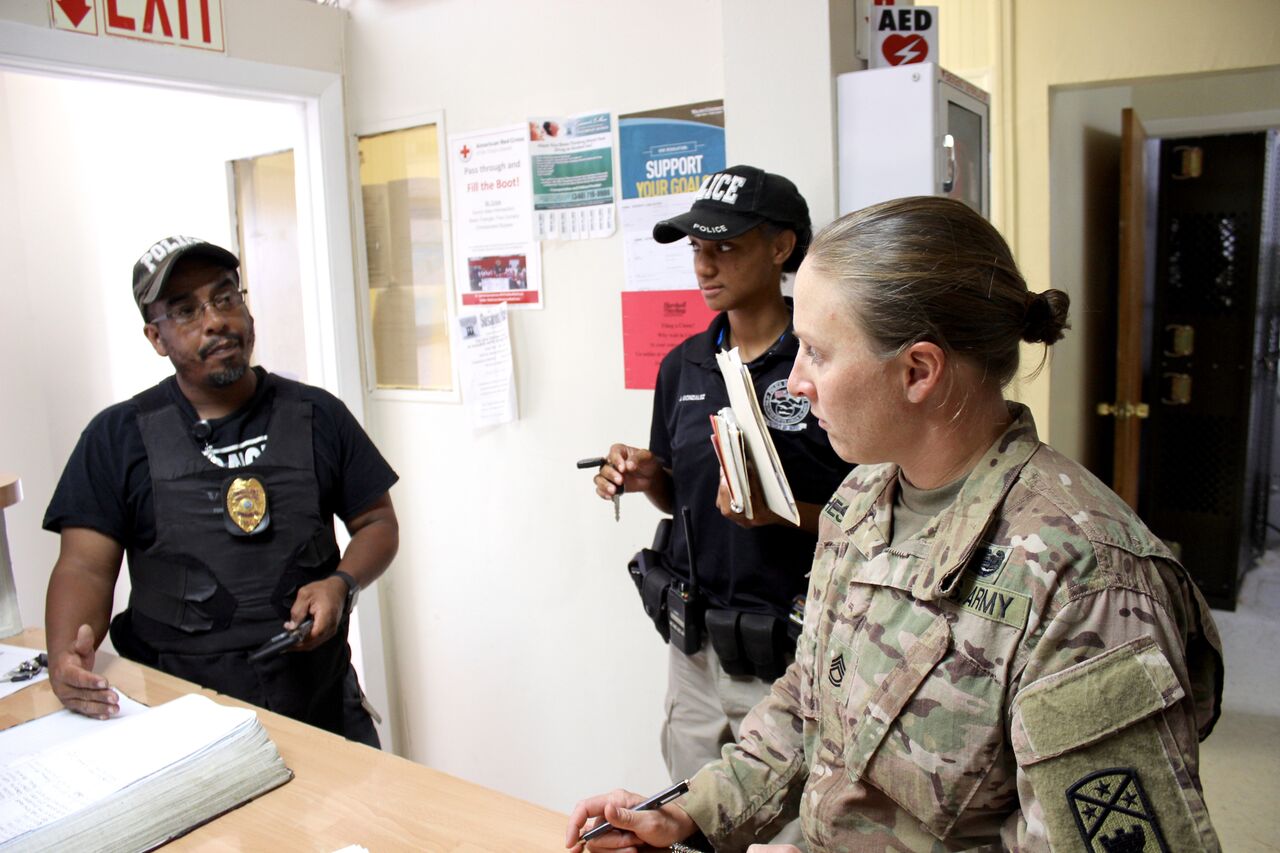
The Voluntourist: It seems like supporting women and female empowerment is really important to you.
Leigh Ann Hester: Boys have all kinds of different heroes like action figures and Superman and G.I. Joes. They’re all male role models and when I was a kid I looked up to Wonder Woman. My mom buys me a Christmas ornament every year and it’s either Andy Griffith or Wonder Woman. I don’t think I’m a hero or anything like that, I was just doing what I was trained to do and having the backs of my brothers. But I think if that helps in any way create something for a younger person then that’s great. I did my job.
The Voluntourist: Why do you think women have faced such oppression and discrimination in the military? I know you said women are finally started to been seen as equal in the armed services, but why weren’t we before?
Leigh Ann Hester: That goes back thousands of years. Not to get too political, but men have always ruled the world. Women in the military is just one of the last things. We’ve had a woman run for president, and women in the government and I think this is one of the last steps for women’s equality in the United States, but it’s slowly getting to where it should be.
The Voluntourist: Who are some of the women that you look up to and are inspired by?
Leigh Ann Hester: Lynda Carter I really looked up to as a kid and Hillary Clinton because of all of the work she’s done in years past and being a forerunner in government, as well as all of the female soldiers that have come before me.
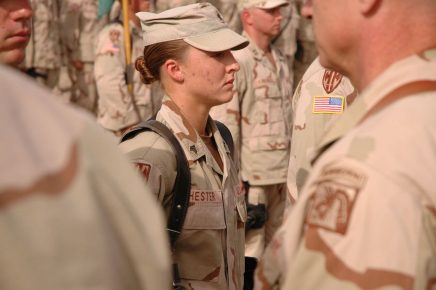
The Voluntourist: What’s next for you?
Leigh Ann Hester: I have a few more years left in the National Guard. I’m currently a detective at the Franklin Police Department in Nashville and I plan on working there until retirement. I’ve been a police officer for 12 years now. I think I’ve always had an interest in wearing a uniform and being able to help people who can’t help themselves. It’s not always pretty and it’s not always fun, but you get a sense of reward after it.
The Voluntourist: What does putting on the uniform mean to you?
Leigh Ann Hester: The police uniform and the military uniform is a symbol of doing something that a lot of people aren’t willing to do or can’t do or don’t want to do. I don’t think of it as I or me, it’s something we choose to do and stand up for hopefully gives people a better way of life.
You can watch the PBS National Memorial Day Concert and watch Hester’s full story on Video on Demand until June 10th, 2018 or watch online here.
